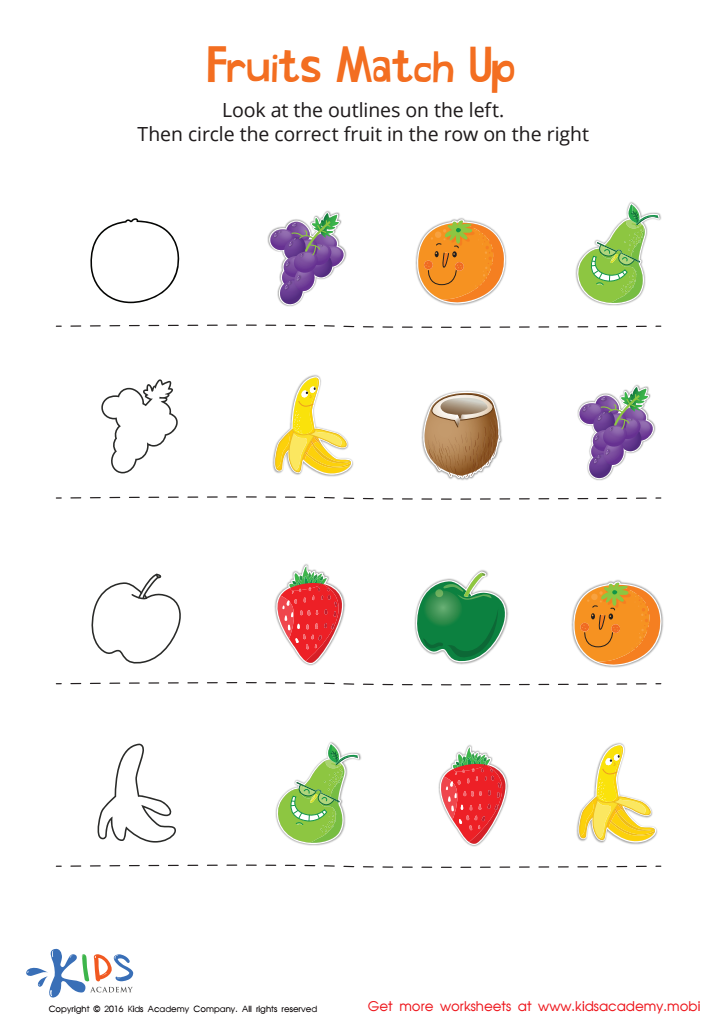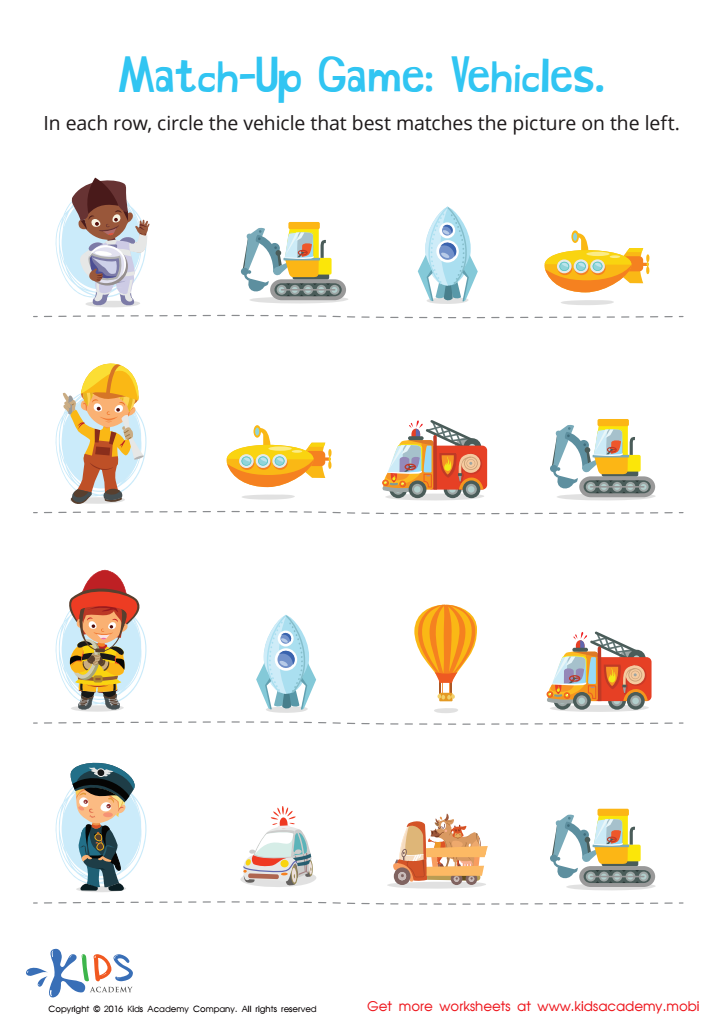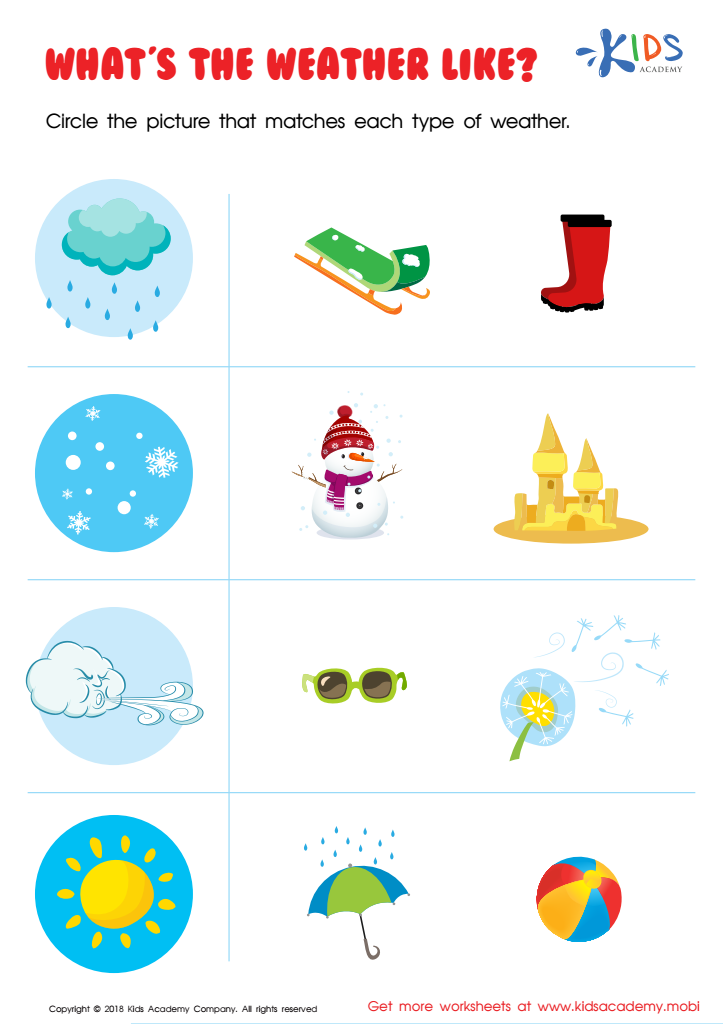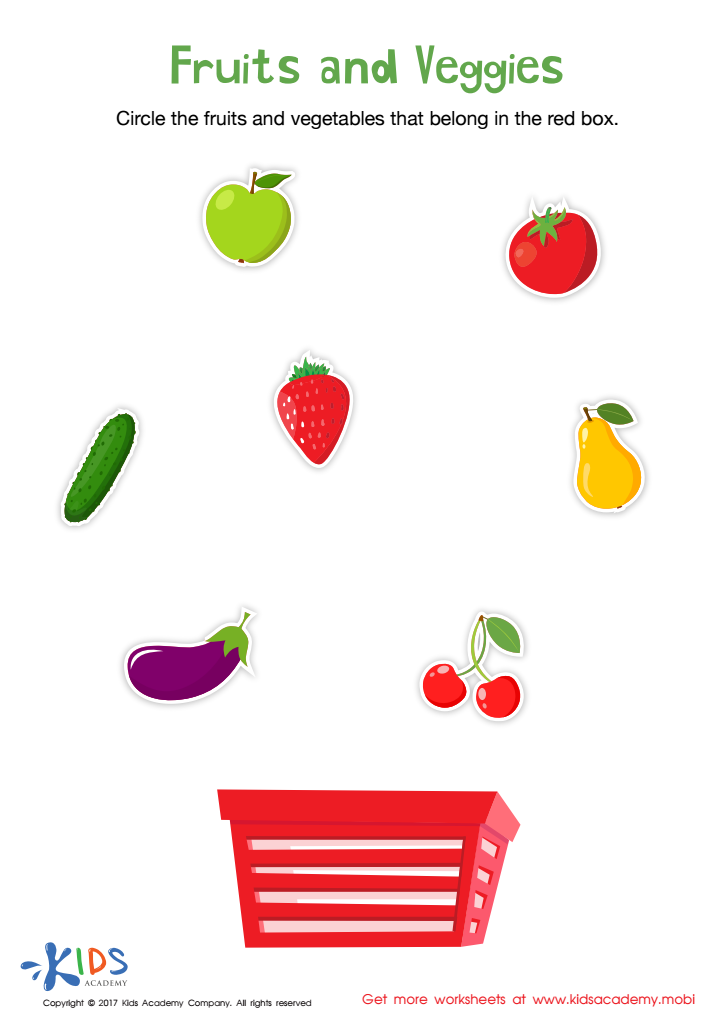Vocabulary Building Normal Matching Worksheets for Ages 3-6
5 filtered results
-
From - To
Discover our engaging Vocabulary Building Matching Worksheets designed for children ages 3-6. These expertly crafted resources aim to enhance early language skills by combining fun matching activities with vibrant visuals. Perfect for preschoolers and kindergarteners, the worksheets support the development of word recognition and comprehension. Ideal for both classroom use and at-home learning, children will delight in connecting pictures with corresponding words while expanding their vocabulary. Foster a love for learning and boost your child’s confidence with our interactive and educational materials. Explore now and give your young learners a head start on their educational journey!


Fruits Match Up Worksheet


Matching: Classifying Toys by Size Worksheet


Vehicles Worksheet


What's the Weather Like? Worksheet
Vocabulary building is vital for young children aged 3-6 because it lays the foundation for their cognitive, social, and academic development. During this critical period, children's brains are highly receptive to new information. Expanding vocabulary aids in enhancing communication skills, enabling children to express their thoughts and emotions more clearly and confidently. This strong verbal foundation is closely linked to later reading and writing abilities, which are essential for academic success.
Parents and teachers have pivotal roles in facilitating these early language experiences. Engaging children in normal matching activities, such as sorting pictures and words or playing matching games, can make learning new vocabulary fun and interactive. These activities not only reinforce word recognition but also improve memory and cognitive associations, which are crucial for understanding and using new words appropriately in different contexts.
Furthermore, fostering a rich vocabulary from an early age contributes to better social interactions. Children with a broad vocabulary can more easily engage in conversations, understand stories, and follow instructions, which are important for building relationships and succeeding in collaborative classroom settings.
In summary, prioritizing vocabulary building through enjoyable and meaningful activities during ages 3-6 sets the stage for lifelong learning and effective communication, giving children the tools they need to thrive both academically and socially.
 Assign to My Students
Assign to My Students























